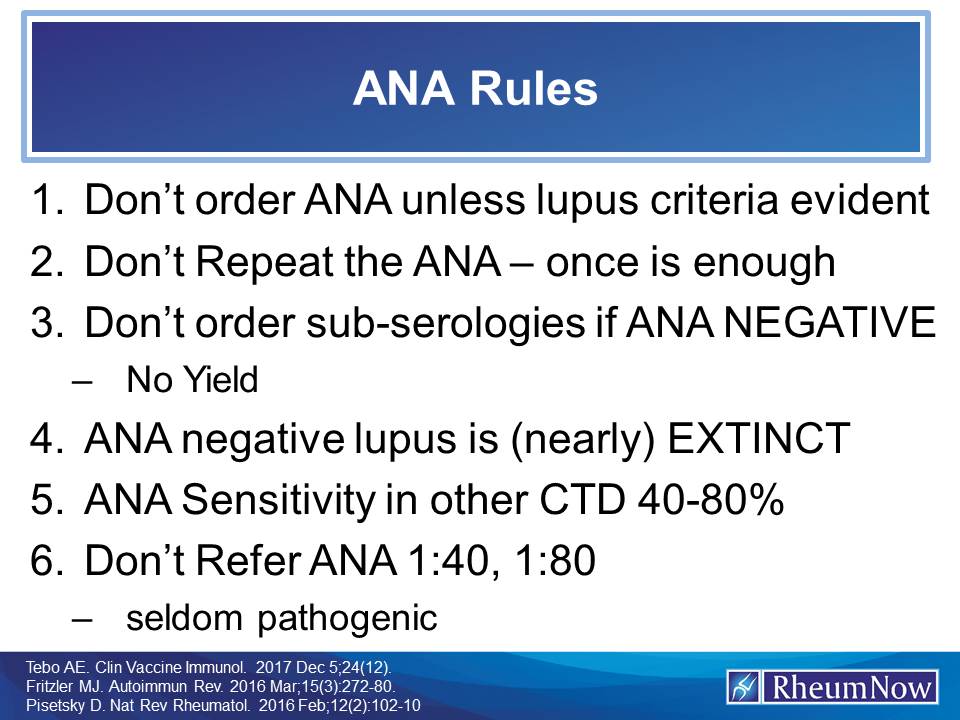ANA Rules Save
By downloading this material, I acknowledge that it may be used only for personal use and personal education and that I will accredit RheumNow.com as the source and owner of this material. Commercial use or mass reproduction of this material without permission from RheumNow (info@rheumnow.com) is prohibited.
Join The Discussion
Comments
Dr. Cush. I'm a PCP, not a Rheumatologist. I know you state not to repeat the ANA, but what about following a patient with significantly elevated ANA (say 1:320), and not quite meeting criteria for lupus. Should these patients at least be followed q12 months by a rheumatologist for subsequent progression to lupus or other CTD, which may be around 18% of cases (https://rheumnow.com/content/predicting-autoimmune-progression-ana-pati…)
Also, regarding sub-serologies, the Choosing Wisely program suggests that at least checking Jo1 and SSA in appropriate situations may still be valuable.
https://www.choosingwisely.org/clinician-lists/american-college-rheumat…
Thoughts?
Thanks for this question. At the core of my teaching slide is the notion that the ANA is a confirmatory test (based on having lupus like symptoms - beyond aches or pains); it is a horrible diagnostic test if used to screen for disease that might be lupus or autoimmune. An ANA of 1:320 is still a low positive that is meaningless if there arent SEVERAL lupus specific features in play. I dont and wouldnt repeat the test (to see where it goes) unless the patients symptoms and status evolves to more SLE features, and then... ordering an ANA is helpful and confirmatory. Ordering subserologies (Jo1 or SSA) if the ANA is negative is a mistake and unwise advise, as the diagnostic yield would be very very very low.
Bottom line - if the patient has pain (& you dont know why) and you find a +ANA (& your wondering if its lupus) -- it would be smart to refer to rheumatology to find out the cause of the pain (usually easier for rheum to explain the pain, than to try to fit the pain and low ANA into an unreasonable SLE diagnosis).










If you are a health practitioner, you may Login/Register to comment.
Due to the nature of these comment forums, only health practitioners are allowed to comment at this time.